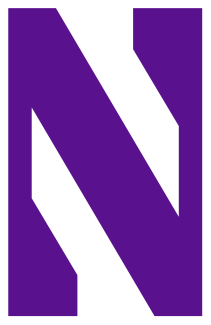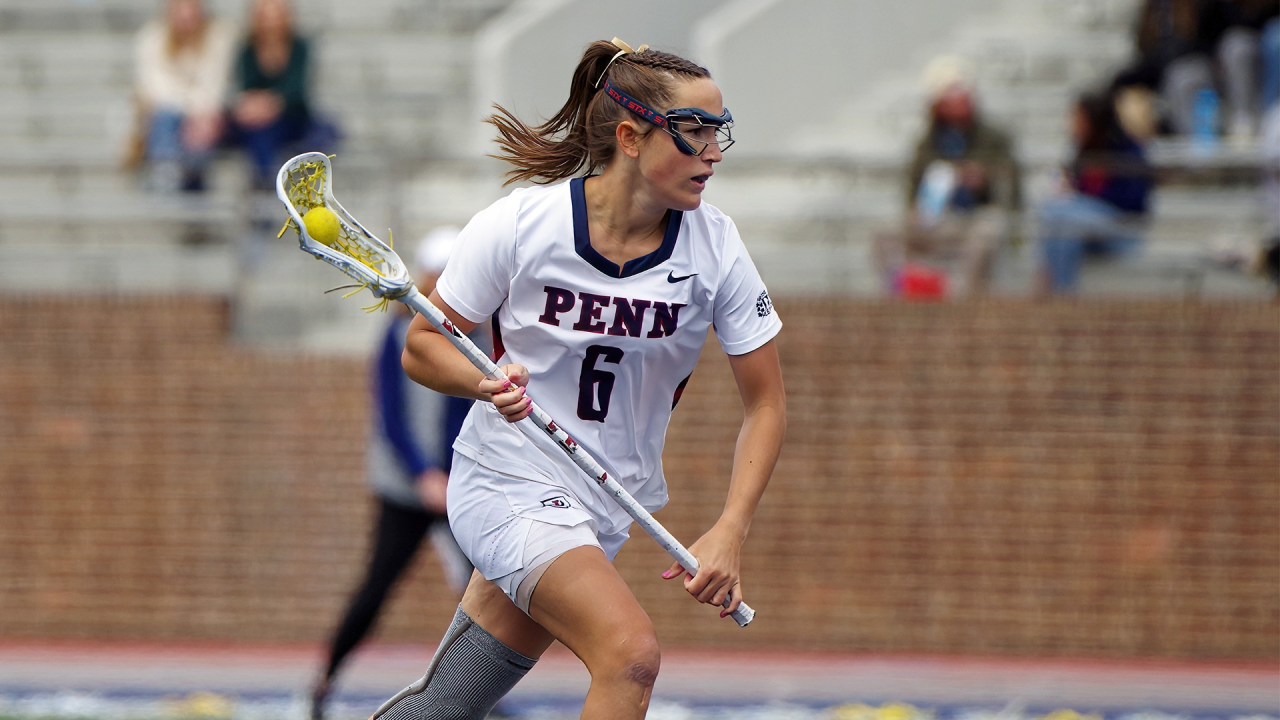Rohr arrived on campus in 2019 and made an immediate impact, clearly a rising star on the Quakers’ defense.
“It’s always a transition for high school kids to play defense at this level, and she was acclimating well,” Corbett said. “She earned a starting position as a freshman on a very strong team. I remember the Georgetown game her freshman year. She had a couple of caused turnovers. She was playing like a relentless competitor with zero fears. I remember turning to one of my assistants and being like, ‘She’s going to be really good.’”
That was Rohr’s first collegiate game on Feb. 15, 2020, and she did, in fact, have three caused turnovers. Less than a month later, COVID-19 forced the cancellation of the 2020 season. Ivy League student-athletes also lost the 2021 season. Hoping to preserve some eligibility, Rohr took the spring of 2021 off and moved to Miami with her teammates. She returned to the northeast in 2022, ready to take the field — normalcy, at last, right?
Not for Rohr. A month into fall practices, she tore her ACL, something she had previously done in high school. This one hurt more, and not just physically.
“It was worse the second time,” Rohr said. “Everyone talks about the comeback, but realistically, you know it’s going to be nine months to a year. I felt like I was in my best shape and had been doing all of this running. We had taken all those years off, and it was heartbreaking, but my dad’s voice played in my head. I still loved the school, and my teammates were so supportive.”
Injured players often grab an iPad and become player-coaches on the field (see: Scane when she lost her 2022 season to a torn ACL). Rohr did, too, though it was a strange position. She had never played an entire season of collegiate lacrosse. Still, she made the most of it, encouraging younger players and trying to help them adjust to the numerous aspects of becoming Ivy League student-athletes.
Rohr was itching to get back on the field. When she was cleared toward the end of the 2022 season, coming back early was tempting, but she resisted the urge and used summer to get stronger.
It showed in the fall before what was supposed to be Rohr’s senior season had all the above not happened.
“I remember we were going half speed, and I’m like, ‘Oh my God, she’s going half speed and hasn’t played in two years,’” Corbett said. “She just understands spacing and has that intuition that sometimes takes kids a while to learn. Even when she couldn’t go full speed, it was clear she was getting it all back quickly with the game sense part. The physicality came back with all the work she put in.”
Penn was also trying to make a comeback of sorts after producing a 6-9 2022 record that didn’t include a trip to the Ivy League championship.
“We put that on our locker room door, and every time we walked out, we saw that number five,” Rohr said.
The Quakers finished No. 1, beating Yale in overtime in the Ivy League championship game, with Rohr causing two turnovers. Penn went on to beat UConn in the first round of the NCAA tournament before pushing Boston College to the brink in a 9-7 loss. It marked one of only five times in 23 games the Eagles were limited to single-digit goals last season.
This year, Penn was picked first in the Ivy League. But the Quakers’ season is something of a microcosm of what has been a wild 2024 in which upsets became weekly affairs. The Quakers, for instance, beat Loyola and Maryland but lost to Ivy foes Princeton and Yale in the regular season, the latter coming in a 16-8 drubbing on April 16. Penn was the No. 3 seed in the Ivy tournament, where it advanced to the championship game and fell to Yale in a double-overtime thriller. Hours later, the Quakers learned they’d be the No. 8 seed in the NCAA tournament and get a home game.
Talk about whiplash — again, welcome to 2024 in Division I women’s lacrosse.
“This year has been crazy with every team. Anyone can beat anyone on any given day,” Rohr said. “It was impactful to watch other teams do that. When Notre Dame beat Northwestern, and everyone thought Northwestern was unbeatable, it showed that it was anyone’s game this year.”
Notre Dame beat the Wildcats by holding them scoreless for the final 9:52 of the game. Penn, too, will lean on its defense, as it has all season. The Quakers enter the matchup ninth in Division I in scoring defense at 8.58 goals allowed per game.
“We have a saying on our defensive end, ‘Feel the fear,’” Rohr said. “Our defense is trying to feel the fear of the attack, and we want to dictate the attack. We’ve done so throughout this year pretty consistently.”
Rohr credits Kelly Van Hoesen (.467 SV%) for stopping shots when attackers did break through the zone. But the Quakers know they must be airtight on Thursday night against a Northwestern attack that ranks second in Division I, averaging 17 goals per game, with Scane also sitting in second individually at 4.17 goals per game.
“We need to shift everywhere as a unit,” Rohr said. “We can't have those breakdowns or big gaps within the zone.”
Rohr also has a few gaps — as in, two years of eligibility remaining. She plans to use at least one but isn’t ready to publicly discuss her plans. In fact, she seemed initially hesitant to consider playing anywhere other than Penn, which would mean ending her playing days this year because of Ivy League eligibility rules. Corbett was ready to support her either way but urged Rohr to consider extending her career, even if it meant wearing a uniform other than the Quakers’ jersey she grew up dreaming of wearing.
“I said, ‘You've only played two years for God's sake, and you're so good,’” Corbett said. “I think that she felt she wanted to end up at Penn because she loves Penn, but for as good as she is and how much joy she gets from playing, that would’ve been a travesty for me to have her only play two years.”
For now, Rohr is a Quaker, and to a large extent, she always will be — and she’s better for it.
“Playing a sport in college, especially at an Ivy League college, definitely teaches you a lot about time management,” said Rohr, who plans to pursue wealth management when she hangs up her cleats. “It helps to work with people well. I feel like that was a huge thing I learned during my internships, just being able to work on a team. We do it every day in college without even realizing it, but that's the working world. And having that competitive nature gives you an edge.”



























































